So my code will ask the user for a input of what operation he wants to perform (+ - * /) and then two numbers.
Based on that, a bunch of if statements will figure out what type of operation the user wants and them calculate the result.
I'm trying to reduce all of that to a single function, how can I make that?
This is what I've tried but it did not work:
This is my old code: I want to reduce all of those if functions to something like the image, a single line that could do all of them.
float N1, N2, R;
char OP;
printf("Type the type of operation you want(+ - * /):");
scanf("%c",&OP);
fflush(stdin);
printf("Type your first number:");
scanf("%f",&N1);
fflush(stdin);
printf("Type your second number:");
scanf("%f",&N2);
fflush(stdin);
if (OP=='+') //ADDITION
{
R=N1+N2;
if (R==(int)R)
{
printf("Your result is: %i \n" ,(int)R);
}
else
{
printf("Your result is: %.2f \n",R);
}
}
else if (OP=='-') //SUBTRACTION
{
R=N1-N2;
if (R==(int)R)
{
printf("Your result is: %i \n",(int)R);
}
else
{
printf("Your result is: %.2f \n",R);
}
}
else if (OP=='*') //MULTIPLICATION
{
R=N1*N2;
if (R==(int)R)
{
printf("Your result is: %i \n",(int)R);
}
else
{
printf("Your result is: %.2f \n",R);
}
}
else if (OP=='/') //DIVISION
{
R=N1/N2;
if (R==(int)R)
{
printf("Your result is: %i \n",(int)R);
}
else
{
printf("Your result is: %.2f \n",R);
}
}
else
{
printf("Error. Please try again.");
}
system("pause");
return 0;